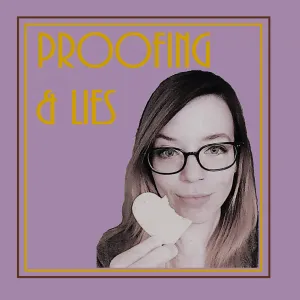What is a Kopitiam in Malaysia?
Kopitiam is a slang term for a local coffee shop in Malaysia, often used to describe casual conversations to pass the time of the day. The following script is an example of a kopitiam followed by my analysis.
The Kopitiam
I couldn’t remember how it started but the heavy atmosphere was getting more and more intense.
“So Jack, a person like me who joined your property consultancy team for only one week just to learn and observe but not to do sales is useless to you, right?” Bruce challenged.
Jack explained: “I didn’t say so, we treat everyone the same, and you are still my brother.”
“But sales and money are important for your circle of people, and people like me just don’t fit. You guys won’t spend much time on me because I won’t bring any benefit, especially your leaders. ”
“We still taught you as usual.”
“But you still thought that I am wrong, right? You won’t expect anyone who is not interested in doing sales to stay in your team.”
“Well there is no right or wrong, I would leave it to the person. But I think you should mix around with more people and listen to their struggles. The reality is we need money, ”
“I guess you didn’t realize that sales is manipulated by your leaders to gain power,”
“But…”
“This conversation is not going to have a conclusion anyway,” Victor concluded.
Trying to link up everything sociologically, I spent a few moments looking at the ceiling.
I could feel that my heart was on fire.
“It’s been an interesting conversation as I can see a lot of sociological stuffs here, maybe I can explain a bit,” I suggested to continue the conversation with them.
Sociological Analysis of the Kopitiam
With some questions and answers omitted, my analysis was summarized as below:
“So Bruce, the reason you didn’t fit is because you were not behaving according to the norm (light bulbs on their head: “new normalcy” of COVID-19) of Jack’s circle when. you were using an ethic approach (observing from outside) to learn about their political hierarchy. You are a deviant to them, that’s why you think you are useless because based on their value, sales is king. Whoever gets more sales, he or she is the influential one. Based on your value, sales is a means to be an authority in Jack’s circle. So, your value justifies your behaviour. And this helps you to see how an organization works by observing the working culture.”
“And Jack because you see people from lower socioeconomic status could hardly make social mobility happen with their hard work. That’s why your job is meaningful because it helps people to achieve financial freedom. But Bruce from a wealthier social class couldn’t really get it. You two are giving different meaning to sales and money because of your interaction with your own circle. That’s why you say he should mingle around. No matter how, he’s still your brother because his key status as your brother dominates his status as a deviant (the explanation of key status wasn’t mentioned in the conversation).”
“Interesting,” they nodded with sparkling eyes.
Bruce, a student of Bachelor’s Degree in Business Marketing applauded, “I think sociology is worth your tuition fee.”
I still remember almost every time after I said I study sociology, the following questions would be “what is it about?” and also “what are you going to do?” Frankly speaking, based on my observation in Malaysia, sociology as well as most of the social science courses are underestimated relating to their career pathways and also money making capability. Lawyers, engineers and businessmen are much more valued than sociologists or managers in human resource or public relations department. Due to the demand, tertiary education is more like a factory to manufacture marketable “humans” in common social perceptions, not like an adorable garden to cultivate and unleash humans’ beauty and value of different kinds to serve the community.
My lecturer once said, “if you don’t relate and apply sociological knowledge to every issue you deal with, what’s the difference between you taking a degree and those Kopitiam uncles (in Malaysia this refers to any middle-aged or elderly men) bluffing about social issues as if they know what is really happening?”
It was a strike. Head shot.
In Malaysia, to achieve social mobility in campus (to be outstanding and admirable), we might be shrewd in playing around with the big three theories and quoting different sociologists to get good grades and publish prestigious papers. But it might not be affecting a single second in our lives. Why? Because all these are merely rational knowledge to settle certain educational short-term goals for the certificate, but not internalized in our heart and mind, to help analyzing the world with sociological frames and bringing better understandings and solutions to our own existing socially interacting world issues with sociological imagination as a lifetime passion.
Undoubtedly, a big part of the socialization of formal education system failed. However, it is not only scholars or educators to shift the social mindset, it is our role as the so-called well-educated generation to make a change: applying it in our daily lives naturally, showing its value to raise awareness on the importance of sociology and make it count as we truly see the beauty of it. But always, good works take time and patience.
This kopitiam chit-chat was a significant moment in my study life that made me
delightful. Sociology is meaningful when we seize the chance to apply it.
“So Jack, just now when you say ‘there’s is no right or wrong’, then is this right?”
Jack turned into a bizarre face with his arms folded, “Hmm… so is it right…”
“In order to advocate that, there must be something true, right?” I went a bit further.
He was mumbling, repeating the question.
“Actually, sociological or any social science analysis doesn’t give us an answer about the absolute truth that we should be deeply rooted in. You have to search for it.”
Most people are afraid to discuss, even to mention, the existence of absolute truth. In a humble way, we dare not to say because we are too limited that we don’t know the whole truth and we are just in the journey of exploration. Therefore, in daily interactions, all assertions are merely personal opinions to be less hostile. But our skepticism and relativism has become our Achilles’ heel, forcing us to admit that there must be something unquestionably true in order to survive.
I don’t know the whole truth, but I certainly know someone who said, “I am the Truth.”







